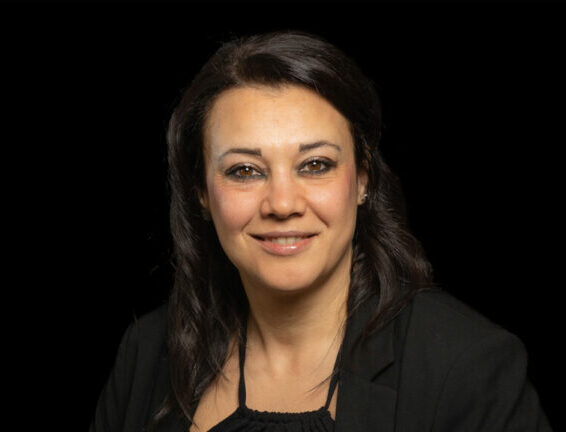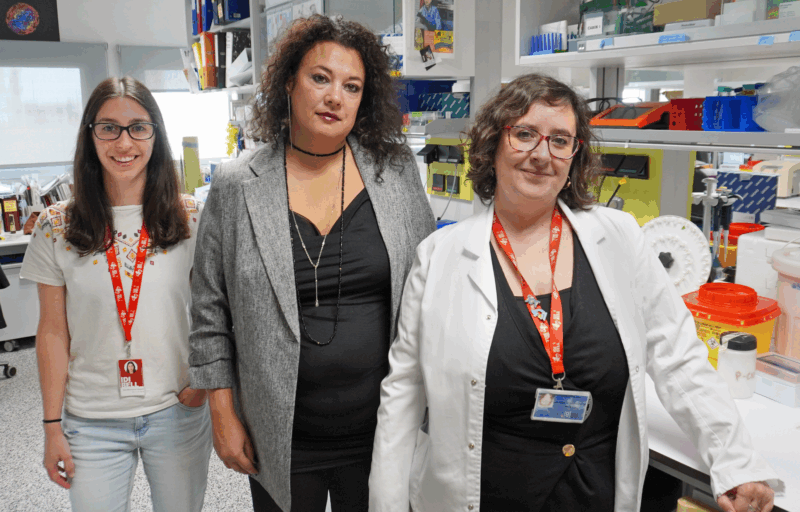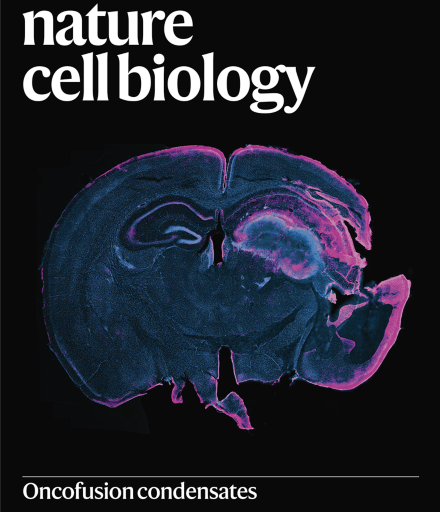EATRIS Meets is an interview series that celebrates the amazing people in the EATRIS community. Maria Carolina Florian is a Group Leader at Bellvitge Biomedical Research Institute (IDIBELL) and EATRIS institution in Spain. She has recently been published in Nature Aging with her research on rejuvenation treatments for healthier blood cells. Read the article here. Maria Carolina shared her experience with us as a member of the multi-faceted EATRIS community.

Tell us a bit about yourself.
I was born in Italy, near Milan and followed my initial studies, including a Master’s and a PhD in Milan. Next, I moved to Ulm, Germany and completed my postdoctoral training at Ulm University. I also worked for some time in Cincinnati, USA, as a guest scientist before becoming Junior Group Leader of my first team on Epigenetic of Stem Cell Aging in Ulm. In 2019, I passed the selection process to become a Group Leader at Bellvitge Biomedical Research Institute (IDIBELL).
More recently, in 2023, I became an ICREA Research Professor. During my career, I won several prestigious fellowships and grants, starting with a national fellowship from Italy to pursue my PhD, then an Emmy Noether grant to establish my independent lab, and the Egon Macher award in Germany. When I moved to Catalunya, I was first awarded a Ramon y Cajal fellowship (2018) and later I obtained an ERC Consolidator grant (2020) from the European Community.
How are you connected with EATRIS, and what does a typical week look like for you?
I learnt about EATRIS through my current institution, which has a strong interest in translating laboratory research into clinical practice. This aligns very well with both my own working interests and with EATRIS’ goals. I don’t really have a “typical” week. My routine is very flexible and changes from day to day. In general, I travel quite frequently to attend meetings and discuss new ideas with peers. I like to spend most of my remaining time talking with my team members and learning about the new advances in their projects, contributing with new ideas and suggestions to improve our work and push further the boundaries of our knowledge. I also meet frequently with clinicians on the campus to coordinate our common projects, and I study and read many different articles and ongoing research plans.
What is translational research for you?
It represents the possibility of turning our work into reality: proving that our findings have clear and important applications for clinically relevant questions and for patients.
Why did you decide to work in the translational medicine field?
My overarching goal has always been to improve therapeutic options for patients and the possibility of curing more people more efficiently, up to even preventing disease.
What advice would you give your younger self?
To trust in yourself and keep working. To try to focus, and sometimes it’s better to stop and think before doing.
What do you like to do when you aren’t working?
I enjoy outdoor sports, going to the beach, and spending time with my kids and dogs.
If you were a drug, vaccine or diagnostic, what would you be and why?
I would be the rejuvenating drug that we are studying in my lab!
What would surprise people to know about you?
I like punk rock music!
Recent publication in Nature Aging
A research team led by Dr M. Carolina Florian at IDIBELL and ICREA has discovered a way to rejuvenate ageing blood stem cells by targeting a key molecular pathway. Published in Nature Aging, the study shows that treating blood stem cells with Rhosin, a molecule that inhibits the protein RhoA, restores their regenerative capacity and leads to the production of healthier blood cells. Combining laboratory and computational approaches, researchers from IDIBELL, ISGlobal and the Barcelona Supercomputing Center demonstrated how this intervention reverses age-related changes at the cellular level—paving the way for future therapies to extend healthspan and improve the well-being of ageing populations. Read the press release below and the article in Nature Aging here.


















